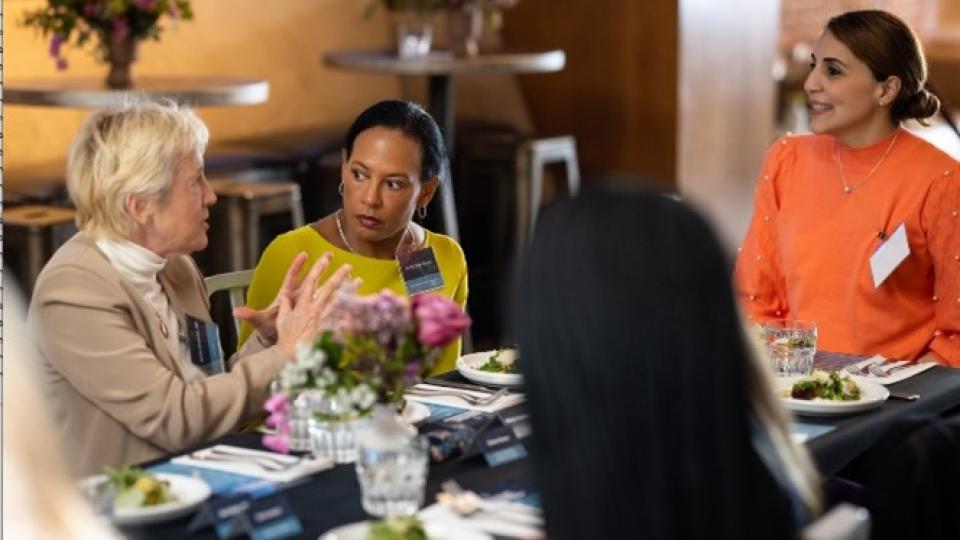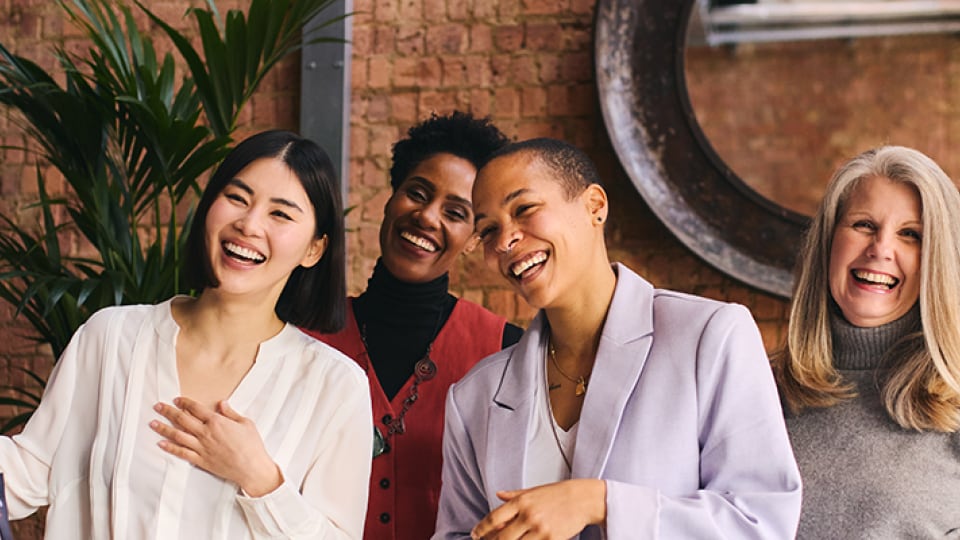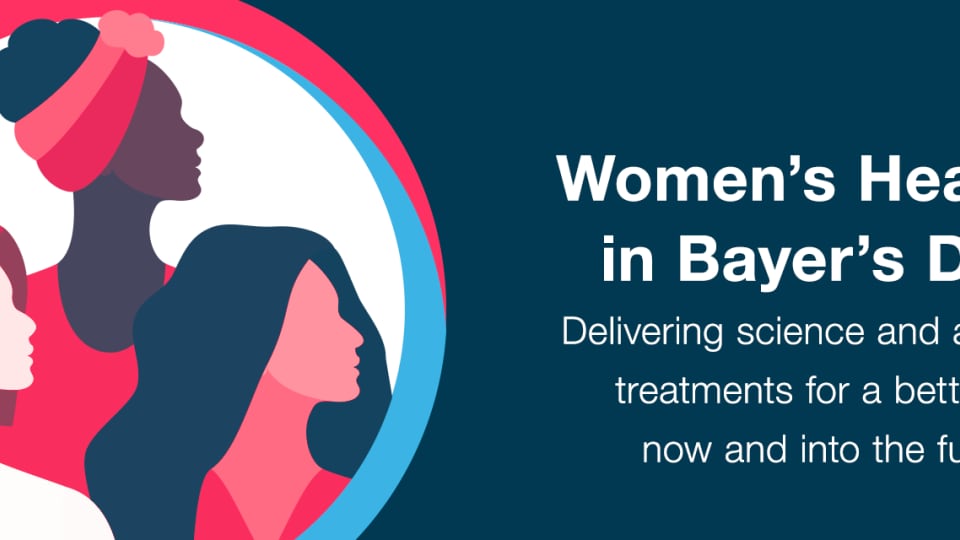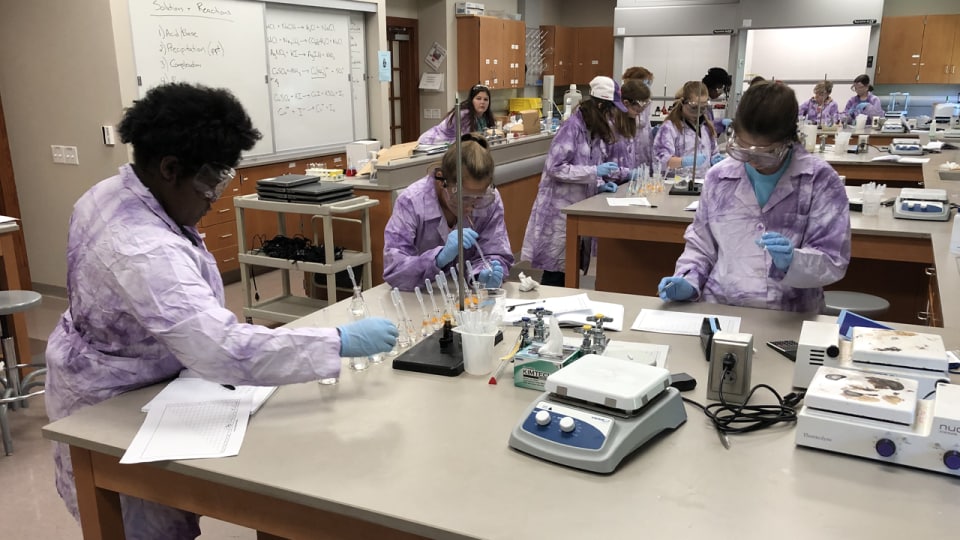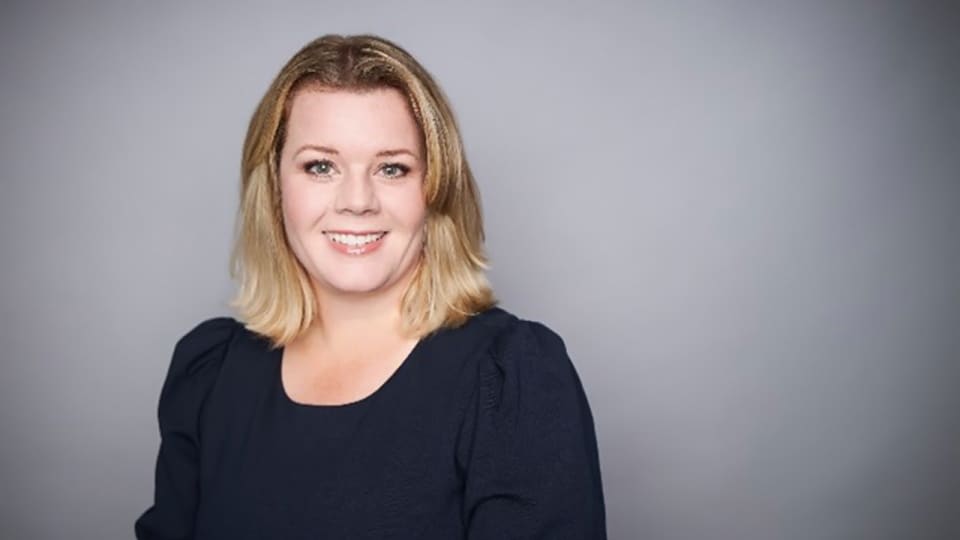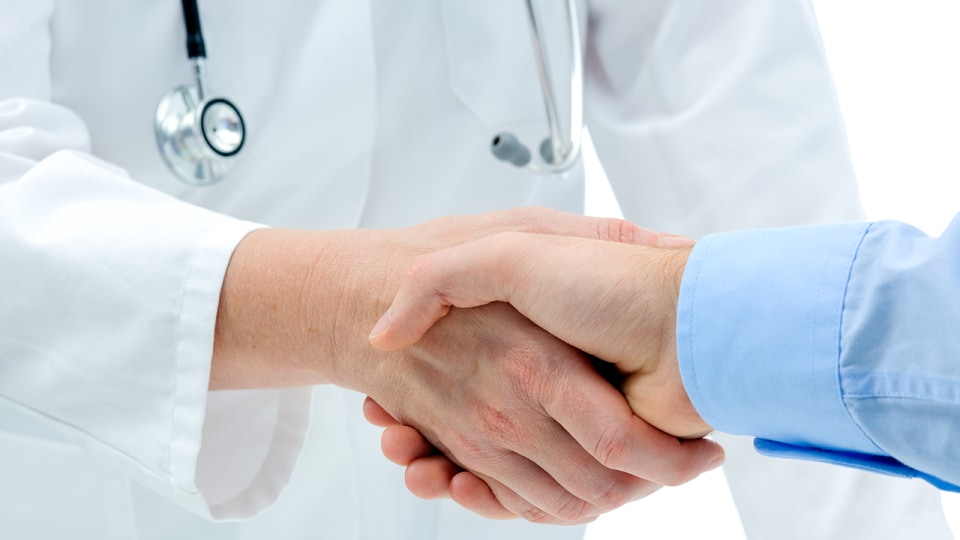Oncology Leader Works to Advance Health Equity Around the Globe

- This Is Bayer
- Agriculture
- Consumer Health
- Pharmaceuticals
- Products
- Community
- News & Stories
- Careers
- This Is Bayer
- Agriculture
- Consumer Health
- Pharmaceuticals
- Products
- Community
- News & Stories
- Careers
Health equity is at the center of Bayer’s Oncology Sustainability initiative. We’re leveraging our science, partnerships, and global presence to build capacity for high-quality cancer care in underprivileged communities around the globe.
Bayer is making significant investments in oncology. From pioneering drugs to expanding access, our responsibility is to bring the best cancer care to people who need it the most. Creating a sustainable ecosystem for screening and treatment in disadvantaged communities is no easy feat and requires significant outreach and collaboration both within Bayer and with external partners.
Chitkala Kalidas, Bayer’s Global Head of Oncology & IVD Regulatory Affairs and Oncology Sustainability, understands that firsthand. In a recent conversation, she shared what it’s like to work closely with Bayer’s global partners to develop strategies that enable access to high-quality cancer treatment and address cancer care disparities around the globe. She shared some details of her experience working with her team on the frontlines.
You’re a scientist by trade. How did that lead you to Bayer?
I have a Ph.D. in Microbiology and am a scientist by training. But I’ve always loved being at the intersection of science and business. After my time as a management consultant at the Boston Consulting Group where I worked on several strategic initiatives, I realized that this intersection is where I wanted to work.
I spent 15 years at Merck working with multiple R&D functions, including capacity planning for the global clinical trials operations organization, collaborating with Medical Directors and Clinical Research staff in more than 35 countries. I enjoyed working with teams across multiple countries and cultures, and learning how global clinical trials are planned and executed. My role expanded to include strategic planning for functional areas involved in all phases of drug development. Later, I joined the Global Regulatory Affairs organization at Merck and worked on the global development and registration of several drugs.
When I was presented with the opportunity to join Bayer Pharmaceuticals and lead the Oncology Global Regulatory Affairs organization nearly six years ago, what piqued my interest was the innovative way in which Bayer was investing in Oncology and making it a pillar of future growth. I wanted to be a part of a growing organization where I could make substantial contributions. Bayer has had many accomplishments across our cross-functional Oncology organization, including first-time milestones and precedent-setting regulatory approvals around the globe. Considering my academic training as a scientist and business experience as a management consultant, being at a science-driven organization is a wonderful fit for me, and regulatory affairs bridges business and science in a fascinating way.
Tell us more about Bayer’s Oncology Sustainability Initiative. What’s the goal behind it?
I am privileged to lead our Oncology Sustainability/Health Equity initiative Sustainability. It’s an area where real change is taking place, not only at Bayer but also across the entire cancer drug development community.
Health equity is at the center of Bayer’s Oncology Sustainability initiative. We’re leveraging our science, partnerships, and global presence to build capacity for high-quality cancer care in underprivileged communities around the globe. The goal is to create sustainable business models to address disparities in cancer care through public-private partnerships. We work with Ministries of Health and other governmental and non-governmental organizations to address the global burden of cancer. Right now, we have six projects underway and are active in the United States, India, Egypt, Ukraine, Ghana, and other countries in sub-Saharan Africa. Three of our Bayer Oncology Sustainability projects have been recognized in President Biden’s Cancer Moonshot announcement.
That is such exciting work! Can you share more details about these projects?
The Global Pediatric Brain Cancer Network is one project recently recognized by the White House Cancer Moonshot team. The network is a collaborative initiative with Bayer, Duke University, the National Brain Tumor Society, and the Open Health Systems Laboratories. It aims to link cancer centers treating pediatric brain cancer patients in the United States with those in India and sub-Saharan Africa through a common digital platform that enables knowledge exchange among treating physicians in high-resource and low-resource settings. Its objectives are well-aligned with those of the Cancer Moonshot: to reduce the global burden of cancer and address disparities in cancer outcomes.
Another project in the White House Cancer Moonshot announcement is the Oncology Sustainability initiative in India. Bayer and the National Cancer Institute of India are collaborating to enable individuals living in remote rural communities in India to gain access to high-quality cancer care through early screening, diagnosis, and treatment for oral, head & neck, and prostate cancer. Many lifestyle factors make these cancers particularly common in these communities, so providing patients with risk assessment tools, coupled with improved health literacy, can help protect their health in the long term. We are also working to connect primary health care clinics to tertiary specialty centers.
To date, we have screened nearly 2,000 patients, and our goal over the next three years is to reach 12,000. Through these efforts, we hope to bring life-saving care to patients who may otherwise not have the means to get screened, diagnosed or treated.
What do you want others to know about the relationship between sustainability and pharma?
There is a strong link between drug development and health equity as medicines should reach all patients who need them. Therefore, we need to identify equitable and sustainable approaches for our innovations to reach patients around the globe. Driving diversity in our clinical trials by including a patient population that is representative of the real-world setting is not just a temporary topic of interest - it’s a widespread movement within the cancer drug development community. I’m looking forward to our work in sustainability having an impact on the global burden of cancer and pushing health equity to the forefront of cancer drug development.
When I assumed the lead role for the Oncology sustainability initiative, I saw it as an amazing opportunity to give back to the communities where Bayer is active—and there are a lot of them! I’m deeply appreciative of the support that my team, and the Executive leadership at Bayer have been providing to me and to this initiative.
What would you like your Bayer colleagues and stakeholders to understand about the sustainability work you’re doing?
Addressing health equity is not a job Bayer can achieve alone. We work with external organizations to create equitable healthcare ecosystems that put people with unmet medical needs at the center. Collaboration within Bayer across global, regional and local organization is a key success factor. When you think of the value Bayer brings to the communities we operate in, we act as a catalyst for change by bringing our own resources including our expertise in drug development and product delivery, capacity building and health systems strengthening as well as partners who can complement our efforts. We have experience in bringing together a multi-stakeholder team including local community leaders to assess the unique needs of the communities, leverage their strengths and ours, and ensure that our solutions are sustainable so that even after the projects are completed, people in the community still derive value from them.
And, lastly, how do you like to spend your time outside of work?
Travel is one of my favorite things to do with my family. I’ve visited nearly 40 countries, and I’m also a huge foodie. I love cooking and trying a variety of global cuisines. One country that I’ve never visited but absolutely love their food is Ethiopia. I grew up in India, and the spices used are very similar. If you haven’t tried their spiced tea, it is amazing!

